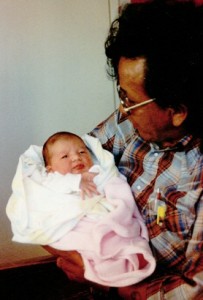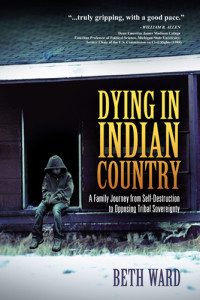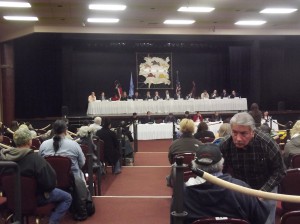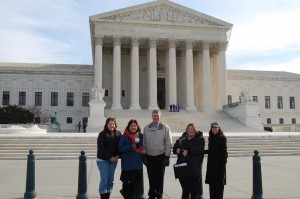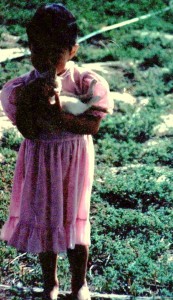UNIFORM CHILD CUSTODY JURISDICTION ACT 1997 (UCCJA)
NATIONAL CONFERENCE OF COMMISSIONERS ON UNIFORM STATE LAWS, and by it
APPROVED AND RECOMMENDED FOR ENACTMENT IN ALL THE STATES, at its
ANNUAL CONFERENCE MEETING IN ITS ONE-HUNDRED-AND-SIXTH YEAR IN SACRAMENTO, CALIFORNIA JULY 25 – AUGUST 1, 1997
WITH PREFATORY NOTE AND COMMENTS
Accessed online November 29, 2010 at 11:30 pm from http://www.law.upenn.edu/bll/archives/ulc/uccjea/final1997act.pdf#search=%22UCCJA%22
Approved by the American Bar Association
Nashville, Tennessee, February 4, 1998
UNIFORM CHILD CUSTODY JURISDICTION ACT
THE BELOW IS ARCHIVED 1968 LAW – PLEASE REFER TO PDF ABOVE FOR 1997 UCCJA
The Committee that acted for the National Conference of Commissioners on
Uniform State Laws in preparing the Uniform Child Custody Jurisdiction and
Enforcement Act (1997) was as follows:
MARIAN P. OPALA, Supreme Court, Room 238, State Capitol, Oklahoma City,
OK, 73105, Chair
DEBORAH E. BEHR, Office of Attorney General, Department of Law,
P.O. Box 110300, Juneau, AK 99811
ROBERT N. DAVIS, University of Mississippi, School of Law, University, MS 38677
ROBERT L. MCCURLEY, JR., Alabama Law Institute, P.O. Box 861425, Tuscaloosa,
AL 35486
DOROTHY J. POUNDERS, 47 N. Third Street, Memphis, TN 38103
BATTLE R. ROBINSON, Family Court Building, 22 The Circle, Georgetown, DE 19947
HARRY L. TINDALL, 2800 Texas Commerce Tower, 600 Travis Street, Houston,
TX 77002
LEWIS V. VAFIADES, P.O. Box 919, 23 Water Street, Bangor, ME 04402
MARTHA LEE WALTERS, Suite 220, 975 Oak Street, Eugene, OR 97401
ROBERT G. SPECTOR, University of Oklahoma College of Law, 300 Timberdell Road,
Norman, OK 73019, Reporter
EX OFFICIO
BION M. GREGORY, Office of Legislative Counsel, State Capitol, Suite 3021,
Sacramento, CA 95814-4996, President
DAVID PEEPLES, 224th District Court, Bexar County Courthouse, 100 Dolorosa,
San Antonio, TX 78205, Chair, Division F
EXECUTIVE DIRECTOR
FRED H. MILLER, University of Oklahoma, College of Law, 300 Timberdell Road,
Norman, OK 73019, Executive Director
WILLIAM J. PIERCE, 1505 Roxbury Road, Ann Arbor, MI 48104,
Executive Director Emeritus
Copies of this Act may be obtained from
NATIONAL CONFERENCE OF COMMISSIONERS
ON UNIFORM STATE LAWS
676 North St. Clair Street, Suite 1700
Chicago, Illinois 60611
312/915-0195
UNIFORM CHILD CUSTODY JURISDICTION ACT
back to top
PREFATORY NOTE
This Act, the Uniform Child Custody Jurisdiction and Enforcement Act
(UCCJEA), revisits the problem of the interstate child almost thirty years after the
Conference promulgated the Uniform Child Custody Jurisdiction Act (UCCJA).
The UCCJEA accomplishes two major purposes.
First, it revises the law on child custody jurisdiction in light of federal
enactments and almost thirty years of inconsistent case law. Article 2 of this Act
provides clearer standards for which States can exercise original jurisdiction over a
child custody determination. It also, for the first time, enunciates a standard of
continuing jurisdiction and clarifies modification jurisdiction. Other aspects of the
article harmonize the law on simultaneous proceedings, clean hands, and forum non
conveniens.
Second, this Act provides in Article 3 for a remedial process to enforce
interstate child custody and visitation determinations. In doing so, it brings a
uniform procedure to the law of interstate enforcement that is currently producing
inconsistent results. In many respects, this Act accomplishes for custody and
visitation determinations the same uniformity that has occurred in interstate child
support with the promulgation of the Uniform Interstate Family Support Act
(UIFSA).
Revision of Uniform Child Custody Jurisdiction Act
The UCCJA was adopted as law in all 50 States, the District of Columbia,
and the Virgin Islands. A number of adoptions, however, significantly departed
from the original text. In addition, almost thirty years of litigation since the
promulgation of the UCCJA produced substantial inconsistency in interpretation by
state courts. As a result, the goals of the UCCJA were rendered unobtainable in
many cases.
In 1980, the federal government enacted the Parental Kidnaping Prevention
Act (PKPA), 28 U.S.C. § 1738A, to address the interstate custody jurisdictional
problems that continued to exist after the adoption of the UCCJA. The PKPA
mandates that state authorities give full faith and credit to other states’ custody
determinations, so long as those determinations were made in conformity with the
provisions of the PKPA. The PKPA provisions regarding bases for jurisdiction,
restrictions on modifications, preclusion of simultaneous proceedings, and notice
2
requirements are similar to those in the UCCJA. There are, however, some
significant differences. For example, the PKPA authorizes continuing exclusive
jurisdiction in the original decree State so long as one parent or the child remains
there and that State has continuing jurisdiction under its own law. The UCCJA did
not directly address this issue. To further complicate the process, the PKPA
partially incorporates state UCCJA law in its language. The relationship between
these two statutes became “technical enough to delight a medieval property
lawyer.” Homer H. Clark, Domestic Relations § 12.5 at 494 (2d ed. 1988).
As documented in an extensive study by the American Bar Association’s
Center on Children and the Law, Obstacles to the Recovery and Return of
Parentally Abducted Children (1993) (Obstacles Study), inconsistency of
interpretation of the UCCJA and the technicalities of applying the PKPA, resulted
in a loss of uniformity among the States. The Obstacles Study suggested a number
of amendments which would eliminate the inconsistent state interpretations and
harmonize the UCCJA with the PKPA.
The revisions of the jurisdictional aspects of the UCCJA eliminate the
inconsistent state interpretations and can be summarized as follows:
1. Home state priority. The PKPA prioritizes “home state” jurisdiction by
requiring that full faith and credit cannot be given to a child custody determination
by a State that exercises initial jurisdiction as a “significant connection state” when
there is a “home State.” Initial custody determinations based on “significant
connections” are not entitled to PKPA enforcement unless there is no home State.
The UCCJA, however, specifically authorizes four independent bases of
jurisdiction without prioritization. Under the UCCJA, a significant connection
custody determination may have to be enforced even if it would be denied
enforcement under the PKPA. The UCCJEA prioritizes home state jurisdiction in
Section 201.
2. Clarification of emergency jurisdiction. There are several problems
with the current emergency jurisdiction provision of the UCCJA § 3(a)(3).
First, the language of the UCCJA does not specify that emergency jurisdiction may be
exercised only to protect the child on a temporary basis until the court with
appropriate jurisdiction issues a permanent order. Some courts have interpreted the
UCCJA language to so provide. Other courts, however, have held that there is no
time limit on a custody determination based on emergency jurisdiction.
Simultaneous proceedings and conflicting custody orders have resulted from these
different interpretations.
Second, the emergency jurisdiction provisions predated the widespread
enactment of state domestic violence statutes. Those statutes are often invoked to
keep one parent away from the other parent and the children when there is a threat
of violence. Whether these situations are sufficient to invoke the emergency
jurisdiction provision of the UCCJA has been the subject of some confusion since
the emergency jurisdiction provision does not specifically refer to violence directed
against the parent of the child or against a sibling of the child.
The UCCJEA contains a separate section on emergency jurisdiction at
Section 204 which addresses these issues.
3. Exclusive continuing jurisdiction for the State that entered the
decree. The failure of the UCCJA to clearly enunciate that the decree-granting
State retains exclusive continuing jurisdiction to modify a decree has resulted in
two major problems.
First, different interpretations of the UCCJA on continuing
jurisdiction have produced conflicting custody decrees. States also have different
interpretations as to how long continuing jurisdiction lasts. Some courts have held
that modification jurisdiction continues until the last contestant leaves the State,
regardless of how many years the child has lived outside the State or how tenuous
the child’s connections to the State have become. Other courts have held that
continuing modification jurisdiction ends as soon as the child has established a new
home State, regardless of how significant the child’s connections to the decree State
remain. Still other States distinguish between custody orders and visitation orders.
This divergence of views leads to simultaneous proceedings and conflicting custody
orders.
The second problem arises when it is necessary to determine whether the
State with continuing jurisdiction has relinquished it. There should be a clear basis
to determine when that court has relinquished jurisdiction. The UCCJA provided
no guidance on this issue. The ambiguity regarding whether a court has declined
jurisdiction can result in one court improperly exercising jurisdiction because it
erroneously believes that the other court has declined jurisdiction. This caused
simultaneous proceedings and conflicting custody orders. In addition, some courts
have declined jurisdiction after only informal contact between courts with no
opportunity for the parties to be heard. This raised significant due process
concerns. The UCCJEA addresses these issues in Sections 110, 202, and 206.
4. Specification of what custody proceedings are covered. The
definition of custody proceeding in the UCCJA is ambiguous. States have rendered
conflicting decisions regarding certain types of proceedings. There is no general
agreement on whether the UCCJA applies to neglect, abuse, dependency, wardship,
guardianship, termination of parental rights, and protection from domestic violence
proceedings. The UCCJEA includes a sweeping definition that, with the exception
of adoption, includes virtually all cases that can involve custody of or visitation
with a child as a “custody determination.”
5. Role of “Best Interests.” The jurisdictional scheme of the UCCJA was
designed to promote the best interests of the children whose custody was at issue by
discouraging parental abduction and providing that, in general, the State with the
closest connections to, and the most evidence regarding, a child should decide that
child’s custody. The “best interest” language in the jurisdictional sections of the
UCCJA was not intended to be an invitation to address the merits of the custody
dispute in the jurisdictional determination or to otherwise provide that “best
interests” considerations should override jurisdictional determinations or provide an
additional jurisdictional basis.
The UCCJEA eliminates the term “best interests” in order to clearly
distinguish between the jurisdictional standards and the substantive standards
relating to custody and visitation of children.
6. Other Changes. This draft also makes a number of additional
amendments to the UCCJA. Many of these changes were made to harmonize the
provisions of this Act with those of the Uniform Interstate Family Support Act.
One of the policy bases underlying this Act is to make uniform the law of interstate
family proceedings to the extent possible, given the very different jurisdictional
foundations. It simplifies the life of the family law practitioner when the same or
similar provisions are found in both Acts.
Enforcement Provisions
One of the major purposes of the revision of the UCCJA was to provide a
remedy for interstate visitation and custody cases. As with child support, state
borders have become one of the biggest obstacles to enforcement of custody and
visitation orders. If either parent leaves the State where the custody determination
was made, the other parent faces considerable difficulty in enforcing the visitation
and custody provisions of the decree. Locating the child, making service of
process, and preventing adverse modification in a new forum all present problems.
There is currently no uniform method of enforcing custody and visitation
orders validly entered in another State. As documented by the Obstacles Study,
despite the fact that both the UCCJA and the PKPA direct the enforcement of
visitation and custody orders entered in accordance with mandated jurisdictional
prerequisites and due process, neither act provides enforcement procedures or
remedies.
As the Obstacles Study pointed out, the lack of specificity in enforcement
procedures has resulted in the law of enforcement evolving differently in different
jurisdictions. In one State, it might be common practice to file a Motion to Enforce
or a Motion to Grant Full Faith and Credit to initiate an enforcement proceeding. In
another State, a Writ of Habeas Corpus or a Citation for Contempt might be
commonly used. In some States, Mandamus and Prohibition also may be utilized.
All of these enforcement procedures differ from jurisdiction to jurisdiction. While
many States tend to limit considerations in enforcement proceedings to whether the
court which issued the decree had jurisdiction to make the custody determination,
others broaden the considerations to scrutiny of whether enforcement would be in
the best interests of the child.
Lack of uniformity complicates the enforcement process in several ways:
(1) It increases the costs of the enforcement action in part because the services of more
than one lawyer may be required – one in the original forum and one in the State
where enforcement is sought;
(2) It decreases the certainty of outcome;
(3) It can
turn enforcement into a long and drawn out procedure. A parent opposed to the
provisions of a visitation determination may be able to delay implementation for
many months, possibly even years, thereby frustrating not only the other parent, but
also the process that led to the issuance of the original court order.
The provisions of Article 3 provide several remedies for the enforcement of
a custody determination.
First, there is a simple procedure for registering a custody
determination in another State. This will allow a party to know in advance whether
that State will recognize the party’s custody determination. This is extremely
important in estimating the risk of the child’s non-return when the child is sent on
visitation. The provision should prove to be very useful in international custody
cases.
Second, the Act provides a swift remedy along the lines of habeas corpus.
Time is extremely important in visitation and custody cases. If visitation rights
cannot be enforced quickly, they often cannot be enforced at all. This is
particularly true if there is a limited time within which visitation can be exercised
such as may be the case when one parent has been granted visitation during the
winter or spring holiday period. Without speedy consideration and resolution of the
enforcement of such visitation rights, the ability to visit may be lost entirely.
Similarly, a custodial parent must be able to obtain prompt enforcement when the
noncustodial parent refuses to return a child at the end of authorized visitation,
particularly when a summer visitation extension will infringe on the school year. A
swift enforcement mechanism is desirable for violations of both custody and
visitation provisions.
The scope of the enforcing court’s inquiry is limited to the issue of whether
the decree court had jurisdiction and complied with due process in rendering the
original custody decree. No further inquiry is necessary because neither Article 2
nor the PKPA allows an enforcing court to modify a custody determination.
Third, the enforcing court will be able to utilize an extraordinary remedy. If
the enforcing court is concerned that the parent, who has physical custody of the
child, will flee or harm the child, a warrant to take physical possession of the child
is available.
Finally, there is a role for public authorities, such as prosecutors, in the
enforcement process. Their involvement will encourage the parties to abide by the
terms of the custody determination. If the parties know that public authorities and
law enforcement officers are available to help in securing compliance with custody
determinations, the parties may be deterred from interfering with the exercise of
rights established by court order.
The involvement of public authorities will also prove more effective in
remedying violations of custody determinations. Most parties do not have the
resources to enforce a custody determination in another jurisdiction. The
availability of the public authorities as an enforcement agency will help ensure that
this remedy can be made available regardless of income level. In addition, the
public authorities may have resources to draw on that are unavailable to the average
litigant.
This Act does not authorize the public authorities to be involved in the
action leading up to the making of the custody determination, except when
requested by the court, when there is a violation of the Hague Convention on the
Civil Aspects of International Child Abduction, or when the person holding the
child has violated a criminal statute. The Act does not mandate that public
authorities be involved in all cases. Not all States, or local authorities, have the
funds necessary for an effective custody and visitation enforcement program.
UNIFORM CHILD CUSTODY JURISDICTION ACT
back to top
SECTION 1. [Purposes of Act; Construction of Provisions.]
(a) The general purposes of this Act are to:
(1) avoid jurisdictional competition and conflict with courts of other states in matters of child custody which have in the past resulted in the shifting of children from state to state with harmful effects on their well-being;
(2) promote cooperation with the courts of other states to the end that a custody decree is rendered in that state which can best decide the case in the interest of the child;
(3) assure that litigation concerning the custody of a child take place ordinarily in the state with which the child and his family have the closest connection and where significant evidence concerning his care, protection, training, and personal relationships is most readily available, and that courts of this state decline the exercise of jurisdiction when the child and his family have a closer connection with another state;
(4) discourage continuing controversies over child custody in the interest of greater stability of home environment and of secure family relationships for the child;
(5) deter abductions and other unilateral removals of children undertaken to obtain custody awards;
(6) avoid re-litigation of custody decisions of other states in this state insofar as feasible;
(7) facilitate the enforcement of custody decrees of other states;
(8) promote and expand the exchange of information and other forms of mutual assistance between the courts of this state and those of other states concerned with the same child; and
(9) make uniform the law of those states which enact it.
(b) This Act shall be construed to promote the general purposes stated in this section.
Comment
Because this uniform law breaks new ground not previously covered by legislation, its purposes are stated in some detail. Each section must be read and applied with these purposes in mind.
back to top
SECTION 2. [Definitions.]
As used in this Act:
(1) “contestant” means a person, including a parent, who claims a right to custody or visitation rights with respect to a child;
(2) “custody determination” means a court decision and court orders and instructions providing for the custody of a child, including visitation rights; it does not include a decision relating to child support or any other monetary obligation of any person;
(3) “custody proceeding” includes proceedings in which a custody determination is one of several issues, such as an action for divorce or separation, and includes child neglect and dependency proceedings;
(4) “decree” or “custody decree” means a custody determination contained in a judicial decree or order made in a custody proceeding, and includes an initial decree and a modification decree;
(5) “home state” means the state in which the child immediately preceding the time involved lived with his parents, a parent, or a person acting as parent, for at least 6 consecutive months, and in the case of a child less than 6 months old the state in which the child lived from birth with any of the persons mentioned. Periods of temporary absence of any of the named persons are counted as part of the 6-month or other period;
(6) “initial decree” means the first custody decree concerning a particular child;
(7) “modification decree” means a custody decree which modifies or replaces a prior decree, whether made by the court which rendered the prior decree or by another court;
(8) “physical custody” means actual possession and control of a child;
(9) “person acting as parent” means a person, other than a parent, who has physical custody of a child and who has either been awarded custody by a court or claims a right to custody; and
(10) “state” means any state, territory, or possession of the United States, the Commonwealth of Puerto Rico, and the District of Columbia.
Comment
Subsection (3) indicates that “custody proceeding” is to be understood in a broad sense. The term covers habeas corpus actions, guardianship petitions, and other proceedings available under general state law to determine custody. See Clark, Domestic Relations 576-582 (1968).
Other definitions are explained, if necessary, in the comments to the sections which use the terms defined.
back to top
SECTION 3. [Jurisdiction.]
(a) A court of this State which is competent to decide child custody matters has jurisdiction to make a child custody determination by initial or modification decree if:
(1) this State
(i) is the home state of the child at the time of commencement of the proceeding, or
(ii) had been the child’s home state within 6 months before commencement of the proceeding and the child is absent from this State because of his removal or retention by a person claiming his custody or for other reasons, and a parent or person acting as parent continues to live in this State; or
(2) it is in the best interest of the child that a court of this State assume jurisdiction because
(i) the child and his parents, or the child and at least one contestant, have a significant connection with this State, and (ii) there is available in this State substantial evidence concerning the child’s present or future care, protection, training, and personal relationships; or
(3) the child is physically present in this State and
(i) the child has been abandoned or
(ii) it is necessary in an emergency to protect the child because he has been subjected to or threatened with mistreatment or abuse or is otherwise neglected [or dependent]; or
(4)
(i) it appears that no other state would have jurisdiction under prerequisites substantially in accordance with paragraphs (1), (2), or (3), or another state has declined to exercise jurisdiction on the ground that this State is the more appropriate forum to determine the custody of the child, and
(ii) it is in the best interest of the child that this court assume jurisdiction.
(b) Except under paragraphs (3) and (4) of subsection (a), physical presence in this State of the child, or of the child and one of the contestants, is not alone sufficient to confer jurisdiction on a court of this State to make a child custody determination.
(c) Physical presence of the child, while desirable, is not a prerequisite for jurisdiction to determine his custody.
Comment
Paragraphs (1) and (2) of subsection (a) establish the two major bases for jurisdiction. In the first place, a court in the child’s home state has jurisdiction, and secondly, if there is no home state or the child and his family have equal or stronger ties with another state, a court in that state has jurisdiction. If this alternative test produces concurrent jurisdiction in more than one state, the mechanisms provided in sections 6 and 7 are used to assure that only one state makes the custody decision.
“Home state” is defined in section 2(5). A 6-month period has been selected in order to have a definite and certain test which is at the same time based on a reasonable assumption of fact. See Ratner, Child Custody in a Federal System, 62 Mich.L.Rev. 795, 818 (1964) who explains:
“Most American children are integrated into an American community after living there six months; consequently this period of residence would seem to provide a reasonable criterion for identifying the established home.”
Subparagraph (ii) of paragraph (1) extends the home state rule for an additional six-month period in order to permit suit in the home state after the child’s departure. The main objective is to protect a parent who has been left by his spouse taking the child along. The provision makes clear that the stay-at-home parent, if he acts promptly, may start proceedings in his own state if he desires, without the necessity of attempting to base jurisdiction on paragraph (2). This changes the law in those states which required presence of the child as a condition for jurisdiction and consequently forced the person left behind to follow the departed person to another state, perhaps to several states in succession. See also subsection (c).
Paragraph (2) comes into play either when the home state test cannot be met or as an alternative to that test. The first situation arises, for example, when a family has moved frequently and there is no state where the child has lived for 6 months prior to suit, or if the child has recently been removed from his home state and the person who was left behind has also moved away. See paragraph (1), last clause. A typical example of alternative jurisdiction is the case in which the stay-at-home parent chooses to follow the departed spouse to state 2 (where the child has lived for several months with the other parent) and starts proceedings there. Whether the departed parent also has access to a court in state 2, depends on the strength of the family ties in that state and on the applicability of the clean hands provision of section 8. If state 2, for example, was the state of the matrimonial home where the entire family lived for two years before moving to the “home state” for 6 months, and the wife returned to state 2 with the child with the consent of the husband, state 2 might well have jurisdiction upon petition of the wife. The same may be true if the wife returned to her parents in her former home state where the child had spent several months every year before. Compare Willmore v. Willmore, 273 Minn. 537, 143 N.W.2d 630 (1966), cert. denied 385 U.S. 898 (1966). While jurisdiction may exist in two states in these instances, it will not be exercised in both states. See sections 6 and 7.
Paragraph (2) of subsection (a) is supplemented by subsection (b) which is designed to discourage unilateral removal of children to other states and to guard generally against too liberal an interpretation of paragraph (2). Short-term presence in the state is not enough even though there may be an intent to stay longer, perhaps an intent to establish a technical “domicile” for divorce or other purposes.
Paragraph (2) perhaps more than any other provision of the Act requires that it be interpreted in the spirit of the legislative purposes expressed in section 1. The paragraph was phrased in general terms in order to be flexible enough to cover many fact situations too diverse to lend themselves to exact description. But its purpose is to limit jurisdiction rather than to proliferate it. The first clause of the paragraph is important: jurisdiction exists only if it is in the child’s interest, not merely the interest or convenience of the feuding parties, to determine custody in a particular state. The interest of the child is served when the forum has optimum access to relevant evidence about the child and family. There must be maximum rather than minimum contact with the state. The submission of the parties to a forum, perhaps for purposes of divorce, is not sufficient without additional factors establishing closer ties with the state. Divorce jurisdiction does not necessarily include custody jurisdiction. See Clark, Domestic Relations 578 (1968).
Paragraph (3) of subsection (a) retains and reaffirms parens patriae jurisdiction, usually exercised by a juvenile court, which a state must assume when a child is in a situation requiring immediate protection. This jurisdiction exists when a child has been abandoned and in emergency cases of child neglect. Presence of the child in the state is the only prerequisite. This extraordinary jurisdiction is reserved for extraordinary circumstances. See Application of Lang, 9 App.Div.2d 401, 193 N.Y.S.2d 763 (1959). When there is child neglect without emergency or abandonment, jurisdiction cannot be based on this paragraph.
Paragraph (4) of subsection (a) provides a final basis for jurisdiction which is subsidiary in nature. It is to be resorted to only if no other state could, or would, assume jurisdiction under the other criteria of this section.
Subsection (c) makes it clear that presence of the child is not a jurisdictional requirement. Subsequent sections are designed to assure the appearance of the child before the court.
This section governs jurisdiction to make an initial decree as well as a modification decree. Both terms are defined in section 2. Jurisdiction to modify an initial or modification decree of another state is subject to additional restrictions contained in sections 8(b) and 14(a).
back to top
SECTION 4. [Notice and Opportunity to be Heard.]
Before making a decree under this Act, reasonable notice and opportunity to be heard shall be given to the contestants, any parent whose parental rights have not been previously terminated, and any person who has physical custody of the child. If any of these persons is outside this State, notice and opportunity to be heard shall be given pursuant to section 5.
Comment
This section lists the persons who must be notified and given an opportunity to be heard to satisfy due process requirements. As to persons in the forum state, the general law of the state applies; others are notified in accordance with section 5. Strict compliance with sections 4 and 5 is essential for the validity of a custody decree within the state and its recognition and enforcement in other states under sections 12, 13, and 15. See Restatement of the Law Second, Conflict of Laws, Proposed Official Draft sec. 69 (1967); and compare Armstrong v. Manzo, 380 U.S. 545, 85 S.Ct. 1187, 14 L.Ed.2d 62 (1965).
back to top
SECTION 5. [Notice to Persons Outside this State; Submission to Jurisdiction.]
(a) Notice required for the exercise of jurisdiction over a person outside this State shall be given in a manner reasonably calculated to give actual notice, and may be:
(1) by personal delivery outside this State in the manner prescribed for service of process within this State;
(2) in the manner prescribed by the law of the place in which the service is made for service of process in that place in an action in any of its courts of general jurisdiction;
(3) by any form of mail addressed to the person to be served and requesting a receipt; or
(4) as directed by the court [including publication, if other means of notification are ineffective].
(b) Notice under this section shall be served, mailed, or delivered, [or last published] at least [10, 20] days before any hearing in this State.
(c) Proof of service outside this State may be made by affidavit of the individual who made the service, or in the manner prescribed by the law of this State, the order pursuant to which the service is made, or the law of the place in which the service is made. If service is made by mail, proof may be a receipt signed by the addressee or other evidence of delivery to the addressee.
(d) Notice is not required if a person submits to the jurisdiction of the court.
Comment
Section 2.01 of the Uniform Interstate and International Procedure Act has been followed to a large extent. See 9B U.L.A. 315 (1966). If at all possible, actual notice should be received by the affected persons; but efforts to impart notice in a manner reasonably calculated to give actual notice are sufficient when a person who may perhaps conceal his whereabouts, cannot be reached. See Mullane v. Central Hanover Bank and Trust Co., 339 U.S. 306, 70 S.Ct. 652, 94 L.Ed. 865 (1950) and Schroeder v. City of New York, 371 U.S. 208, 83 S.Ct. 279, 9 L.Ed.2d 255 (1962).
Notice by publication in lieu of other means of notification is not included because of its doubtful constitutionality. See Mullane v. Central Hanover Bank and Trust Co., supra; and see Hazard, A General Theory of State-Court Jurisdiction, 1965 Supreme Court Rev. 241, 277, 286-87. Paragraph (4) of subsection (a) lists notice by publication in brackets for the benefit of those states which desire to use published notices in addition to the modes of notification provided in this section when these modes prove ineffective to impart actual notice.
The provisions of this section, and paragraphs (2) and (4) of subsection (a) in particular, are subject to the caveat that notice and opportunity to be heard must always meet due process requirements as they exist at the time of the proceeding.
back to top
SECTION 6. [Simultaneous Proceedings in Other States.]
(a) A court of this State shall not exercise its jurisdiction under this Act if at the time of filing the petition a proceeding concerning the custody of the child was pending in a court of another state exercising jurisdiction substantially in conformity with this Act, unless the proceeding is stayed by the court of the other state because this State is a more appropriate forum or for other reasons.
(b) Before hearing the petition in a custody proceeding the court shall examine the pleadings and other information supplied by the parties under section 9 and shall consult the child custody registry established under section 16 concerning the pendency of proceedings with respect to the child in other states. If the court has reason to believe that proceedings may be pending in another state it shall direct an inquiry to the state court administrator or other appropriate official of the other state.
(c) If the court is informed during the course of the proceeding that a proceeding concerning the custody of the child was pending in another state before the court assumed jurisdiction it shall stay the proceeding and communicate with the court in which the other proceeding is pending to the end that the issue may be litigated in the more appropriate forum and that information be exchanged in accordance with sections 19 through 22. If a court of this State has made a custody decree before being informed of a pending proceeding in a court of another state it shall immediately inform that court of the fact. If the court is informed that a proceeding was commenced in another state after it assumed jurisdiction it shall likewise inform the other court to the end that the issues may be litigated in the more appropriate forum.
Comment
Because of the havoc wreaked by simultaneous and competitive jurisdiction which has been described in the Prefatory Note, this section seeks to avoid jurisdictional conflict with all feasible means, including novel methods. Courts are expected to take an active part under this section in seeking out information about custody proceedings concerning the same child pending in other states. In a proper case jurisdiction is yielded to the other state either under this section or under section 7. Both sections must be read together.
When the courts of more than one state have jurisdiction under sections 3 or 14, priority in time determines which court will proceed with the action, but the application of the inconvenient forum principle of section 7 may result in the handling of the case by the other court.
While jurisdiction need not be yielded under subsection (a) if the other court would not have jurisdiction under the criteria of this Act, the policy against simultaneous custody proceedings is so strong that it might in a particular situation be appropriate to leave the case to the other court even under such circumstances. See subsection (3) and section 7.
Once a custody decree has been rendered in one state, jurisdiction is determined by sections 8 and 14.
back to top
SECTION 7. [Inconvenient Forum.]
(a) A court which has jurisdiction under this Act to make an initial or modification decree may decline to exercise its jurisdiction any time before making a decree if it finds that it is an inconvenient forum to make a custody determination under the circumstances of the case and that a court of another state is a more appropriate forum.
(b) A finding of inconvenient forum may be made upon the court’s own motion or upon motion of a party or a guardian ad litem or other representative of the child.
(c) In determining if it is an inconvenient forum, the court shall consider if it is in the interest of the child that another state assume jurisdiction. For this purpose it may take into account the following factors, among others:
(1) if another state is or recently was the child’s home state;
(2) if another state has a closer connection with the child and his family or with the child and one or more of the contestants;
(3) if substantial evidence concerning the child’s present or future care, protection, training, and personal relationships is more readily available in another state;
(4) if the parties have agreed on another forum which is no less appropriate; and
(5) if the exercise of jurisdiction by a court of this state would contravene any of the purposes stated in section 1.
(d) Before determining whether to decline or retain jurisdiction the court may communicate with a court of another state and exchange information pertinent to the assumption of jurisdiction by either court with a view to assuring that jurisdiction will be exercised by the more appropriate court and that a forum will be available to the parties.
(e) If the court finds that it is an inconvenient forum and that a court of another state is a more appropriate forum, it may dismiss the proceedings, or it may stay the proceedings upon condition that a custody proceeding be promptly commenced in another named state or upon any other conditions which may be just and proper, including the condition that a moving party stipulate his consent and submission to the jurisdiction of the other forum.
(f) The court may decline to exercise its jurisdiction under this Act if a custody determination is incidental to an action for divorce or another proceeding while retaining jurisdiction over the divorce or other proceeding.
(g) If it appears to the court that it is clearly an inappropriate forum it may require the party who commenced the proceedings to pay, in addition to the costs of the proceedings in this State, necessary travel and other expenses, including attorneys’ fees, incurred by other parties or their witnesses. Payment is to be made to the clerk of the court for remittance to the proper party.
(h) Upon dismissal or stay of proceedings under this section the court shall inform the court found to be the more appropriate forum of this fact or, if the court which would have jurisdiction in the other state is not certainly known, shall transmit the information to the court administrator or other appropriate official for forwarding to the appropriate court.
(i) Any communication received from another state informing this State of a finding of inconvenient forum because a court of this State is the more appropriate forum shall be filed in the custody registry of the appropriate court. Upon assuming jurisdiction the court of this State shall inform the original court of this fact.
Comment
The purpose of this provision is to encourage judicial restraint in exercising jurisdiction whenever another state appears to be in a better position to determine custody of a child. It serves as a second check on jurisdiction once the test of sections 3 or 14 has been met.
The section is a particular application of the inconvenient forum principle, recognized in most states by judicial law, adapted to the special needs of child custody cases. The terminology used follows section 84 of the Restatement of the Law Second, Conflict of Laws, Proposed Official Draft (1967). Judicial restrictions or exceptions to the inconvenient forum rule made in some states do not apply to this statutory scheme which is limited to child custody cases.
Like section 6, this section stresses interstate judicial communication and cooperation. When there is doubt as to which is the more appropriate forum, the question may be resolved by consultation and cooperation among the courts involved.
Paragraphs (1) through (5) of subsection (c) specify some, but not all, considerations which enter into a court determination of inconvenient forum. Factors customarily listed for purposes of the general principle of the inconvenient forum (such as convenience of the parties and hardship to the defendant) are also pertinent, but may under the circumstances be of secondary importance because the child who is not a party is the central figure in the proceedings.
Part of subsection (e) is derived from Wis.Stat.Ann., sec. 262.19(1).
Subsection (f) makes it clear that a court may divide a case, that is, dismiss part of it and retain the rest. See section 1.05 of the Uniform Interstate and International Procedure Act. When the custody issue comes up in a divorce proceeding, courts may have frequent occasion to decline jurisdiction as to that issue (assuming that custody jurisdiction exists under sections 3 or 14).
Subsection (g) is an adaptation of Wis.Stat.Ann., sec. 262.20. Its purpose is to serve as a deterrent against “frivolous jurisdiction claims,” as G.W. Foster states in the Revision Notes to the Wisconsin provision. It applies when the forum chosen is seriously inappropriate considering the jurisdictional requirements of the Act.
back to top
SECTION 8. [Jurisdiction Declined by Reason of Conduct.]
(a) If the petitioner for an initial decree has wrongfully taken the child from another state or has engaged in similar reprehensible conduct the court may decline to exercise jurisdiction if this is just and proper under the circumstances.
(b) Unless required in the interest of the child, the court shall not exercise its jurisdiction to modify a custody decree of another state if the petitioner, without consent of the person entitled to custody, has improperly removed the child from the physical custody of the person entitled to custody or has improperly retained the child after a visit or other temporary relinquishment of physical custody. If the petitioner has violated any other provision of a custody decree of another state the court may decline to exercise its jurisdiction if this is just and proper under the circumstances.
(c) In appropriate cases a court dismissing a petition under this section may charge the petitioner with necessary travel and other expenses, including attorneys’ fees, incurred by other parties or their witnesses.
Comment
This section incorporates the “clean hands doctrine,” so named by Ehrenzweig, Interstate Recognition of Custody Decrees, 51 Mich.L.Rev. 345 (1953). Under this doctrine courts refuse to assume jurisdiction to reexamine an out-of-state custody decree when the petitioner has abducted the child or has engaged in some other objectionable scheme to gain or retain physical custody of the child in violation of the decree. See Fain, Custody of Children, The California Family Lawyer I, 539, 546 (1961); Ex Parte Mullins, 26 Wash.2d 419, 174 P.2d 790 (1946); Crocker v. Crocker, 122 Colo. 49, 219 P.2d 311 (1950); and Leathers v. Leathers, 162 Cal.App.2d 768, 328 P.2d 853 (1958). But when adherence to this rule would lead to punishment of the parent at the expense of the well being of the child, it is often not applied. See Smith v. Smith, 135 Cal.App.2d 100, 286 P.2d 1009 (1955) and In re Guardianship of Rodgers, 100 Ariz. 269, 413 P.2d 744 (1966).
Subsection (a) extends the clean hands principle to cases in which a custody decree has not yet been rendered in any state. For example, if upon a de facto separation the wife returned to her own home with the children without objection by her husband and lived there for two years without hearing from him, and the husband without warning forcibly removes the children one night and brings them to another state, a court in that state although it has jurisdiction after 6 months may decline to hear the husband’s custody petition. “Wrongfully” taking under this subsection does not mean that a “right” has been violated – both husband and wife as a rule have a right to custody until a court determination is made – but that one party’s conduct is so objectionable that a court in the exercise of its inherent equity powers cannot in good conscience permit that party access to its jurisdiction.
Subsection (b) does not come into operation unless the court has power under section 14 to modify the custody decree of another state. It is a codification of the clean hands rule, except that it differentiates between (1) a taking or retention of the child and (2) other violations of custody decrees. In the case of illegal removal or retention refusal of jurisdiction is mandatory unless the harm done to the child by a denial of jurisdiction outweighs the parental misconduct. Compare Smith v. Smith and In Re Guardianship of Rodgers, supra; and see In Re Walter, 228 Cal.App.2d 217, 39 Cal.Rptr. 243 (1964) where the court assumed jurisdiction after both parents had been guilty of misconduct. The qualifying word “improperly” is added to exclude cases in which a child is withheld because of illness or other emergency or in which there are other special justifying circumstances.
The most common violation of the second category is the removal of the child from the state by the parent who has the right to custody, thereby frustrating the exercise of visitation rights of the other parent. The second sentence of subsection (b) makes refusal of jurisdiction entirely discretionary in this situation because it depends on the circumstances whether non-compliance with the court order is serious enough to warrant the drastic sanction of denial of jurisdiction.
Subsection (c) adds a financial deterrent to child stealing and similar reprehensible conduct.
back to top
SECTION 9. [Information under Oath to be Submitted to the Court.]
(a) Every party in a custody proceeding in his first pleading or in an affidavit attached to that pleading shall give information under oath as to the child’s present address, the places where the child has lived within the last 5 years, and the names and present addresses of the persons with whom the child has lived during that period. In this pleading or affidavit every party shall further declare under oath whether:
(1) he has participated (as a party, witness, or in any other capacity) in any other litigation concerning the custody of the same child in this or any other state;
(2) he has information of any custody proceeding concerning the child pending in a court of this or any other state; and
(3) he knows of any person not a party to the proceedings who has physical custody of the child or claims to have custody or visitation rights with respect to the child.
(b) If the declaration as to any of the above items is in the affirmative the declarant shall give additional information under oath as required by the court. The court may examine the parties under oath as to details of the information furnished and as to other matters pertinent to the court’s jurisdiction and the disposition of the case.
(c) Each party has a continuing duty to inform the court of any custody proceeding concerning the child in this or any other state of which he obtained information during this proceeding.
Comment
It is important for the court to receive the information listed and other pertinent facts as early as possible for purposes of determining its jurisdiction, the joinder of additional parties, and the identification of courts in other states which are to be contacted under various provisions of the Act. Information as to custody litigation and other pertinent facts occurring in other countries may also be elicited under this section in combination with section 23.
back to top
SECTION 10. [Additional Parties.]
If the court learns from information furnished by the parties pursuant to section 9 or from other sources that a person not a party to the custody proceeding has physical custody of the child or claims to have custody or visitation rights with respect to the child, it shall order that person to be joined as a party and to be duly notified of the pendency of the proceeding and of his joinder as a party. If the person joined as a party is outside this State he shall be served with process or otherwise notified in accordance with section 5.
Comment
The purpose of this section is to prevent re-litigations of the custody issue when these would be for the benefit of third claimants rather than the child. If the immediate controversy, for example, is between the parents, but relatives inside or outside the state also claim custody or have physical custody which may lead to a future claim to the child, they must be brought into the proceedings. The courts are given an active role here as under other sections of the Act to seek out the necessary information from formal or informal sources.
back to top
SECTION 11. [Appearance of Parties and the Child.]
[(a) The court may order any party to the proceeding who is in this State to appear personally before the court. If that party has physical custody of the child the court may order that he appear personally with the child.]
(b) If a party to the proceeding whose presence is desired by the court is outside this State with or without the child the court may order that the notice given under section 5 include a statement directing that party to appear personally with or without the child and declaring that failure to appear may result in a decision adverse to that party.
(c) If a party to the proceeding who is outside this State is directed to appear under subsection (b) or desires to appear personally before the court with or without the child, the court may require another party to pay to the clerk of the court travel and other necessary expenses of the party so appearing and of the child if this is just and proper under the circumstances.
Comment
Since a custody proceeding is concerned with the past and future care of the child by one of the parties, it is of vital importance in most cases that the judge has an opportunity to see and hear the contestants and the child. Subsection (a) authorizes the court to order the appearance of these persons if they are in the state. It is placed in brackets because states which have such a provision – not only in their juvenile court laws – may wish to omit it. Subsection (b) relates to the appearance of persons who are outside the state and provides one method of bringing them before the court; sections 19(b) and 20(b) provide another. Subsection (c) helps to finance travel to the court which may be close to one of the parties and distant from another; it may be used to equalize the expense if this is appropriate under the circumstances.
back to top
SECTION 12. [Binding Force and Res Judicata Effect of Custody Decree.]
A custody decree rendered by a court of this State which had jurisdiction under section 3 binds all parties who have been served in this State or notified in accordance with section 5 or who have submitted to the jurisdiction of the court, and who have been given an opportunity to be heard. As to these parties the custody decree is conclusive as to all issues of law and fact decided and as to the custody determination made unless and until that determination is modified pursuant to law, including the provisions of this Act.
Comment
This section deals with the intra-state validity of custody decrees which provides the basis for their interstate recognition and enforcement. The two prerequisites are (1) jurisdiction under section 3 of this Act and (2) strict compliance with due process mandates of notice and opportunity to be heard. There is no requirement for technical personal jurisdiction, on the traditional theory that custody determinations, as distinguished from support actions (see section 2(2) supra), are proceedings in rem or proceedings affecting status. See Restatement of the Law Second, Conflict of Laws, Proposed Official Draft, sections 69 and 79 (1967); and James, Civil Procedure 613 (1965). For a different theory reaching the same result, see Hazard, A General Theory of State-Court Jurisdiction, 1965 Supreme Court Review 241. The section is not at variance with May v. Anderson, 345 U.S. 528, 73 S.Ct. 840, 97 L.Ed. 1221 (1953), which relates to interstate recognition rather than in-state validity of custody decrees. See Ehrenzweig and Louisell, Jurisdiction in a Nutshell 76 (2d ed. 1968); and compare Reese, Full Faith and Credit to Foreign Equity Decrees, 42 Iowa L.Rev. 183, 195 (1957). On May v. Anderson, supra, see comment to section 13.
Since a custody decree is normally subject to modification in the interest of the child, it does not have absolute finality, but as long as it has not been modified, it is as binding as a final judgment. Compare Restatement of the Law Second, Conflict of Laws, Proposed Official Draft, section 109 (1967).
back to top
SECTION 13. [Recognition of Out-of-State Custody Decrees.]
The courts of this State shall recognize and enforce an initial or modification decree of a court of another state which had assumed jurisdiction under statutory provisions substantially in accordance with this Act or which was made under factual circumstances meeting the jurisdictional standards of the Act, so long as this decree has not been modified in accordance with jurisdictional standards substantially similar to those of this Act.
Comment
This section and sections 14 and 15 are the key provisions which guarantee a great measure of security and stability of environment to the “interstate child” by discouraging relitigations in other states. See Section 1, and see Ratner, Child Custody in a Federal System, 62 Mich.L.Rev. 795, 828 (1964).
Although the full faith and credit clause may perhaps not require the recognition of out-of-state custody decrees, the states are free to recognize and enforce them. See Restatement of the Law Second, Conflict of Laws, Proposed Official Draft, section 109 (1967), and see the Prefatory Note, supra. This section declares as a matter of state law, that custody decrees of sister states will be recognized and enforced. Recognition and enforcement is mandatory if the state in which the prior decree was rendered 1) has adopted this Act, 2) has statutory jurisdictional requirements substantially like this Act, or 3) would have had jurisdiction under the facts of the case if this Act had been the law in the state. Compare Comment, Ford v. Ford: Full Faith and Credit to Child Custody Decrees? 73 Yale L.J. 134, 148 (1963).
“Jurisdiction” or “jurisdictional standards” under this section refers to the requirements of section 3 in the case of initial decrees and to the requirements of sections 3 and 14 in the case of modification decrees. The section leaves open the possibility of discretionary recognition of custody decrees of other states beyond the enumerated situations of mandatory acceptance. For the recognition of custody decrees of other nations, see section 23.
Recognition is accorded to a decree which is valid and binding under section 12. This means, for example, that a court in the state where the father resides will recognize and enforce a custody decree rendered in the home state where the child lives with the mother if the father was duly notified and given enough time to appear in the proceedings. Personal jurisdiction over the father is not required. See comment to section 12. This is in accord with a common interpretation of the inconclusive decision in May v. Anderson, 345 U.S. 528, 73 S.Ct. 840, 97 L.Ed. 1221 (1953). See Restatement of the Law Second, Conflict of Laws, Proposed Official Draft, section 79 and comment thereto, p. 298 (1967). Under this interpretation a state is permitted to recognize a custody decree of another state regardless of lack of personal jurisdiction, as long as due process requirements of notice and opportunity to be heard have been met. See Justice Frankfurter’s concurring opinion in May v. Anderson; and compare Clark, Domestic Relations 323-26 (1968), Goodrich, Conflict of Laws 274 (4th ed. by Scoles, 1964); Stumberg, Principles of Conflict of Laws 325 (3rd ed. 1963); and Comment, The Puzzle of Jurisdiction in Child Custody Actions, 38 U.Colo.L.Rev. 541 (1966). The Act emphasizes the need for the personal appearance of the contestants rather than any technical requirement for personal jurisdiction.
The mandate of this section could cause problems if the prior decree is a punitive or disciplinary measure. See Ehrenzweig, Inter-state Recognition of Custody Decrees, 51 Mich.L.Rev. 345, 370 (1953). If, for example, a court grants custody to the mother and after 5 years’ of continuous life with the mother the child is awarded to the father by the same court for the sole reason that the mother who had moved to another state upon remarriage had not lived up to the visitation requirements of the decree, courts in other states may be reluctant to recognize the changed decree. See Berlin v. Berlin, 21 N.Y.2d 371, 235 N.E.2d 109 (1967); and Stout v. Pate, 120 Cal.App.2d 699, 261 P.2d 788 (1953); Compare Moniz v. Moniz, 142 Cal.App.2d 527, 298 P.2d 710 (1956). Disciplinary decrees of this type can be avoided under this Act by enforcing the visitation provisions of the decree directly in another state. See Section 15. If the original plan for visitation does not fit the new conditions, a petition for modification of the visiting arrangements would be filed in a court which has jurisdiction, that is, in many cases the original court. See section 14.
back to top
SECTION 14. [Modification of Custody Decree of Another State.]
(a) If a court of another state has made a custody decree, a court of this State shall not modify that decree unless (1) it appears to the court of this State that the court which rendered the decree does not now have jurisdiction under jurisdictional prerequisites substantially in accordance with this Act or has declined to assume jurisdiction to modify the decree and (2) the court of this State has jurisdiction.
(b) If a court of this State is authorized under subsection (a) and section 8 to modify a custody decree of another state it shall give due consideration to the transcript of the record and other documents of all previous proceedings submitted to it in accordance with section 22.
Comment
Courts which render a custody decree normally retain continuing jurisdiction to modify the decree under local law. Courts in other states have in the past often assumed jurisdiction to modify the out-of-state decree themselves without regard to the preexisting jurisdiction of the other state. See People ex rel. Halvey v. Halvey, 330 U.S. 610, 67 S.Ct. 903, 91 L.Ed. 1133 (1947). In order to achieve greater stability of custody arrangements and avoid forum shopping, subsection (a) declares that other states will defer to the continuing jurisdiction of the court of another state as long as that state has jurisdiction under the standards of this Act. In other words, all petitions for modification are to be addressed to the prior state if that state has sufficient contact with the case to satisfy section 3. The fact that the court had previously considered the case may be one factor favoring its continued jurisdiction. If, however, all the persons involved have moved away or the contact with the state has otherwise become slight, modification jurisdiction would shift elsewhere. Compare Ratner, Child Custody in a Federal System, 62 Mich.L.Rev. 795, 821-2 (1964).
For example, if custody was awarded to the father in state 1 where he continued to live with the children for two years and thereafter his wife kept the children in state 2 for 61/2 months (31/2 months beyond her visitation privileges) with or without permission of the husband, state 1 has preferred jurisdiction to modify the decree despite the fact that state 2 has in the meantime become the “home state” of the child. If, however, the father also moved away from state 1, that state loses modification jurisdiction interstate, whether or not its jurisdiction continues under local law. See Clark, Domestic Relations 322-23 (1968). Also, if the father in the same case continued to live in state 1, but let his wife keep the children for several years without asserting his custody rights and without visits of the children in state 1, modification jurisdiction of state 1 would cease. Compare Brengle v. Hurst, 408 S.W.2d 418 (Ky.1966). The situation would be different if the children had been abducted and their whereabouts could not be discovered by the legal custodian for several years. The abductor would be denied access to the court of another state under section 8(b) and state 1 would have modification jurisdiction in any event under section 3(a)(4). Compare Crocker v. Crocker, 122 Colo. 49, 219 P.2d 311 (1950).
The prior court has jurisdiction to modify under this section even though its original assumption of jurisdiction did not meet the standards of this Act, as long as it would have jurisdiction now, that is, at the time of the petition for modification.
If the state of the prior decree declines to assume jurisdiction to modify the decree, another state with jurisdiction under section 3 can proceed with the case. That is not so if the prior court dismissed the petition on its merits.
Respect for the continuing jurisdiction of another state under this section will serve the purposes of this Act only if the prior court will assume a corresponding obligation to make no changes in the existing custody arrangement which are not required for the good of the child. If the court overturns its own decree in order to discipline a mother or father, with whom the child had lived for years, for failure to comply with an order of the court, the objective of greater stability of custody decrees is not achieved. See Comment to section 13 last paragraph, and cases there cited. See also Sharpe v. Sharpe, 77 Ill.App. 295, 222 N.E.2d 340 (1966). Under section 15 of this Act an order of a court contained in a custody decree can be directly enforced in another state.
Under subsection (b) transcripts of prior proceedings if received under section 22 are to be considered by the modifying court. The purpose is to give the judge the opportunity to be as fully informed as possible before making a custody decision. “One court will seldom have so much of the story that another’s inquiry is unimportant” says Paulsen, Appointment of a Guardian in the Conflict of Laws, 45 Iowa L.Rev. 212, 226 (1960). See also Ehrenzweig, the Interstate Child and Uniform Legislation: A Plea for Extra-Litigious Proceedings, 64 Mich.L.Rev. 1, 6-7 (1965); and Ratner, Legislative Resolution of the Interstate Custody Problem: A reply to Professor Currie and a Proposed Uniform Act, 38 S.Cal.L.Rev. 183, 202 (1965). How much consideration is “due” this transcript, whether or under what conditions it is received in evidence, are matters of local, internal law which are not affected by this interstate act.
back to top
SECTION 15. [Filing and Enforcement of Custody Decree of Another State.]
(a) A certified copy of a custody decree of another state may be filed in the office of the clerk of any [District Court, Family Court] of this State. The clerk shall treat the decree in the same manner as a custody decree of the [District Court, Family Court] of this State. A custody decree so filed has the same effect and shall be enforced in like manner as a custody decree rendered by a court of this State.
(b) A person violating a custody decree of another state which makes it necessary to enforce the decree in this State may be required to pay necessary travel and other expenses, including attorneys’ fees, incurred by the party entitled to the custody or his witnesses.
Comment
Out-of-state custody decrees which are required to be recognized are enforced by other states. See section 13. Subsection (a) provides a simplified and speedy method of enforcement. It is derived from section 2 of the Uniform Enforcement of Foreign Judgments Act of 1964, 9A U.L.A. 486 (1965). A certified copy of the decree is filed in the appropriate court, and the decree thereupon becomes in effect a decree of the state of filing and is enforceable by any method of enforcement available under the law of that state.
The authority to enforce an out-of-state decree does not include the power to modify it. If modification is desired, the petition must be directed to the court which has jurisdiction to modify under section 14. This does not mean that the state of enforcement may not in an emergency stay enforcement if there is danger of serious mistreatment of the child. See Ratner, Child Custody in a Federal System, 62 Mich.L.Rev. 795, 832-33 (1964).
The right to custody for periods of visitation and other provisions of a custody decree are enforceable in other states in the same manner as the primary right to custody. If visitation privileges provided in the decree have become impractical upon moving to another state, the remedy against automatic enforcement in another state is a petition in the proper court to modify visitation arrangements to fit the new conditions.
Subsection (b) makes it clear that the financial burden of enforcement of a custody decree may be shifted to the wrongdoer. Compare 2 Armstrong, California Family Law 328 (1966 Suppl.), and Crocker v. Crocker, 195 F.2d 236 (1952).
back to top
SECTION 16. [Registry of Out-of-State Custody Decrees and Proceedings.]
The clerk of each [District Court, Family Court] shall maintain a registry in which he shall enter the following:
(1) certified copies of custody decrees of other states received for filing;
(2) communications as to the pendency of custody proceedings in other states;
(3) communications concerning a finding of inconvenient forum by a court of another state; and
(4) other communications or documents concerning custody proceedings in another state which may affect the jurisdiction of a court of this State or the disposition to be made by it in a custody proceeding.
Comment
The purpose of this section is to gather all information concerning out-of-state custody cases which reaches a court in one designated place. The term “registry” is derived from section 35 of the Uniform Reciprocal Enforcement of Support Act of 1958, 9C U.L.A. 61 (1967 Suppl.) Another term may be used if desired without affecting the uniformity of the Act. The information in the registry is usually incomplete since it contains only those documents which have been specifically requested or which have otherwise found their way to the state. It is therefore necessary in most cases for the court to seek additional information elsewhere.
back to top
SECTION 17. [Certified Copies of Custody Decree.]
The Clerk of the [District Court, Family Court] of this State, at the request of the court of another state or at the request of any person who is affected by or has a legitimate interest in a custody decree, shall certify and forward a copy of the decree to that court or person.
back to top
SECTION 18. [Taking Testimony in Another State.]
In addition to other procedural devices available to a party, any party to the proceeding or a guardian ad litem or other representative of the child may adduce testimony of witnesses, including parties and the child, by deposition or otherwise, in another state. The court on its own motion may direct that the testimony of a person be taken in another state and may prescribe the manner in which and the terms upon which the testimony shall be taken.
Comment
Sections 18 to 22 are derived from sections 3.01 and 3.02 of the Uniform Interstate and International Procedure Act, 9B U.L.A. 305, 321, 326 (1966); from ideas underlying the Uniform Reciprocal Enforcement of Support Act; and from Ehrenzweig, the Interstate Child and Uniform Legislation: A Plea for Extralitigious Proceedings, 64 Mich.L.Rev. 1 (1965). They are designed to fill the partial vacuum which inevitably exists in cases involving an “interstate child” since part of the essential information about the child and his relationship to other persons is always in another state. Even though jurisdiction is assumed under sections 3 and 7 in the state where much (or most) of the pertinent facts are readily available, some important evidence will unavoidably be elsewhere.
Section 18 is derived from portions of section 3.01 of the Uniform Interstate and International Procedure Act, 9B U.L.A. 305, 321. The first sentence relates to depositions, written interrogatories and other discovery devices which may be used by parties or representatives of the child. The procedural rules of the state where the device is used are applicable under this sentence. The second sentence empowers the court itself to initiate the gathering of out-of-state evidence which is often not supplied by the parties in order to give the court a complete picture of the child’s situation, especially as it relates to a custody claimant who lives in another state.
back to top
SECTION 19. [Hearings and Studies in Another State; Orders to Appear.]
(a) A court of this State may request the appropriate court of another state to hold a hearing to adduce evidence, to order a party to produce or give evidence under other procedures of that state, or to have social studies made with respect to the custody of a child involved in proceedings pending in the court of this State; and to forward to the court of this State certified copies of the transcript of the record of the hearing, the evidence otherwise adduced, or any social studies prepared in compliance with the request. The cost of the services may be assessed against the parties or, if necessary, ordered paid by the [County, State].
(b) A court of this State may request the appropriate court of another state to order a party to custody proceedings pending in the court of this State to appear in the proceedings, and if that party has physical custody of the child, to appear with the child. The request may state that travel and other necessary expenses of the party and of the child whose appearance is desired will be assessed against another party or will otherwise be paid.
Comment
Section 19 relates to assistance sought by a court of the forum state from a court of another state. See comment to section 18. Subsection (a) covers any kind of evidentiary procedure available under the law of the assisting state which may aid the court in the requesting state, including custody investigations (social studies) if authorized by the law of the other state. Under what conditions reports of social studies and other evidence collected under this subsection are admissible in the requesting state, is a matter of internal state law not covered in this interstate statute. Subsection (b) serves to bring parties and the child before the requesting court, backed up by the assisting court’s contempt powers. See section 11.
back to top
SECTION 20. [Assistance to Courts of Other States.]
(a) Upon request of the court of another state the courts of this State which are competent to hear custody matters may order a person in this State to appear at a hearing to adduce evidence or to produce or give evidence under other procedures available in this State [or may order social studies to be made for use in a custody proceeding in another state]. A certified copy of the transcript of the record of the hearing or the evidence otherwise adduced [and any social studies prepared] shall be forwarded by the clerk of the court to the requesting court.
(b) A person within this State may voluntarily give his testimony or statement in this State for use in a custody proceeding outside this State.
(c) Upon request of the court of another state a competent court of this State may order a person in this State to appear alone or with the child in a custody proceeding in another state. The court may condition compliance with the request upon assurance by the other state that state travel and other necessary expenses will be advanced or reimbursed.
Comment
Section 20 is the counterpart of section 19. It empowers local courts to give help to out-of-state courts in custody cases. See comments to sections 18 and 19. The references to social studies have been placed in brackets so that states without authorization to make social studies outside of juvenile court proceedings may omit them if they wish. Subsection (b) reaffirms the existing freedom of persons within the United States to give evidence for use in proceedings elsewhere. It is derived from section 3.02(b) of the Interstate and International Procedure Act, 9B U.L.A. 327 (1966).
back to top
SECTION 21. [Preservation of Documents for Use in Other States.]
In any custody proceeding in this State the court shall preserve the pleadings, orders and decrees, any record that has been made of its hearings, social studies, and other pertinent documents until the child reaches [18, 21] years of age. Upon appropriate request of the court of another state the court shall forward to the other court certified copies of any or all of such documents.
Comment
See comments to sections 18 and 19. Documents are to be preserved until the child is old enough that further custody disputes are unlikely. A lower figure than the ones suggested in the brackets may be inserted.
back to top
SECTION 22. [Request for Court Records of Another State.]
If a custody decree has been rendered in another state concerning a child involved in a custody proceeding pending in a court of this State, the court of this State upon taking jurisdiction of the case shall request of the court of the other state a certified copy of the transcript of any court record and other documents mentioned in section 21.
Comment
This is the counterpart of section 21. See comments to sections 18, 19 and 14(b).
back to top
SECTION 23. [International Application.]
The general policies of this Act extend to the international area. The provisions of this Act relating to the recognition and enforcement of custody decrees of other states apply to custody decrees and decrees involving legal institutions similar in nature to custody institutions rendered by appropriate authorities of other nations if reasonable notice and opportunity to be heard were given to all affected persons.
Comment
Not all the provisions of the Act lend themselves to direct application in international custody disputes; but the basic policies of avoiding jurisdictional conflict and multiple litigation are as strong if not stronger when children are moved back and forth from one country to another by feuding relatives. Compare Application of Lang, 9 App.Div.2d 401, 193 N.Y.S.2d 763 (1959) and Swindle v. Bradley, 240 Ark. 903, 403 S.W.2d 63 (1966).
The first sentence makes the general policies of the Act applicable to international cases. This means that the substance of section 1 and the principles underlying provisions like sections 6, 7, 8, and 14(a), are to be followed when some of the persons involved are in a foreign country or a foreign custody proceeding is pending.
The second sentence declares that custody decrees rendered in other nations by appropriate authorities (which may be judicial or administrative tribunals) are recognized and enforced in this country. The only prerequisite is that reasonable notice and opportunity to be heard was given to the persons affected. It is also to be understood that the foreign tribunal had jurisdiction under its own law rather than under section 3 of this Act. Compare Restatement of the Law Second, Conflict of Laws, Proposed Official Draft, sections 10, 92, 98, and 109(2) (1967). Compare also Goodrich Conflict of Laws 390-93 (4th ed., Scoles, 1964).
back to top
[SECTION 24. [Priority.]
Upon the request of a party to a custody proceeding which raises a question of existence or exercise of jurisdiction under this Act the case shall be given calendar priority and handled expeditiously.]
Comment
Judicial time spent in determining which court has or should exercise jurisdiction often prolongs the period of uncertainty and turmoil in a child’s life more than is necessary. The need for speedy adjudication exists, of course, with respect to all aspects of child custody litigation. The priority requirement is limited to jurisdictional questions because an all encompassing priority would be beyond the scope of this Act. Since some states may have or wish to adopt a statutory provision or court rule of wider scope, this section is placed in brackets and may be omitted.
back to top
SECTION 25. [Severability.]
If any provision of this Act or the application thereof to any person or circumstance is held invalid, its invalidity does not affect other provisions or applications of the Act which can be given effect without the invalid provision or application, and to this end the provisions of this Act are severable.
back to top
SECTION 26. [Short Title.]
This Act may be cited as the Uniform Child Custody Jurisdiction Act.
back to top
SECTION 27. [Repeal.]
The following acts and parts of acts are repealed:
(1)
(2)
(3)
back to top
SECTION 28. [Time of Taking Effect.]
This Act shall take effect . . . . . . . .
back to top
The following is a discussion concerning the UCCJA in relationship to the Indian Child Welfatre Act ( ICWA), from
IN RE MARRIAGE OF SHANE COLIN SKILLEN
IN THE SUPREME COURT OF THE STATE OF MONTANA
No. 96-520, 1998 MT 43, Decided: March 3, 1998,
APPEAL FROM: District Court of the Sixteenth Judicial District,In and for the County of Rosebud, The Honorable Joe L. Hegel, Judge presiding. Justice Terry N. Trieweiler delivered the Opinion of the Court.
¶24 The purposes of the UCCJA are, in part, to:
(a) avoid jurisdictional competition and conflict with courts of other states in matters of child custody which have in the past resulted in the shifting of children from state to state with harmful effects on their well-being; . . . .
(c) assure that litigation concerning the custody of a child takes place ordinarily in the state with which the child and his family have the closest connection and where significant evidence concerning his care, protection, training, and personal relationships is most readily available and that courts of this state decline the exercise of jurisdiction when the child and his family have a closer connection with another state;
(d) discourage continuing controversies over child custody in the interest of greater stability of home environment and of secure family relationships for the child; . . . .
Section 40-7-102(1), MCA (emphasis added). As a California case stated, “the UCCJA seeks to limit jurisdiction rather than encourage or condone its proliferation.” In re Marriage of Hopson (Cal. Ct. App. 1980), 168 Cal. Rptr. 345, 356, 110 Cal. App. 3d 884, 899.
¶25 Likewise, the PKPA, which focuses primarily on custody modification, attempts to isolate jurisdiction in the one court which is best able to determine the best interests of the child. The Congressional Findings and Declaration of Purpose for the PKPA state that:
(c) The general purposes of . . . this Act . . . are to:
(1) promote cooperation between State courts to the end that a determination of custody and visitation is rendered in the State which can best decide the case in the interest of the child;
. . . .
(4) discourage continuing interstate controversies over child custody in the interest of greater stability of home environment and of secure family relationships for the child;
(5) avoid jurisdictional competition and conflict between State courts in matters of child custody and visitation which have in the past resulted in the shifting of children from State to State with harmful effects on their well-being; . . . .28 U.S.C. _ 1738A (emphasis added).
¶26 The two laws make clear that jurisdictional disputes over custody are not in the best interest of the child. Furthermore, as will be explained more fully below, the laws seek to certify the single “state” to which the child’s best interest is connected. Finally, they emphasize how important the initial determination of custody jurisdiction is, as subsequent changes in custody jurisdiction run counter to the purpose of the laws and are, therefore, presumptively disfavored.
¶27 …As such, it becomes imperative that the original determination of custody jurisdiction be the correct one.
¶29 The UCCJA permits a court to assert jurisdiction for reasons other than the child’s residence, based on the child’s best interests. Section 40-4-211(1)(b), MCA, sets out when it would be in the child’s best interests for the state to assume jurisdiction:
- the child and the parents or the child and at least one contestant have a significant connection with this state; and
- there is available in this state substantial evidence concerning the child’s present or future care, protection, training, and personal relationships;
However, it explicitly prohibits a state from claiming jurisdiction where only the physical presence of the child would confer jurisdiction, except in limited situations of abuse or abandonment. See § 40-4-211(2), MCA. If no other state has jurisdiction, or where another state has declined to exercise jurisdiction, the state may then assert jurisdiction if it is in the best interest of the child. See § 40-4-211(d), MCA.
back to top
Contact us at
Christian Alliance for Indian Child Welfare
PO Box 253, Hillsboro, ND 58045 – 0253
administrator@caicw.org

 early fall when the wild rice was ripe on the lake and the community would pitch tents down there and spend a couple weeks “ricing” the traditional way. He said it was like the Christmas Holiday is for us.
early fall when the wild rice was ripe on the lake and the community would pitch tents down there and spend a couple weeks “ricing” the traditional way. He said it was like the Christmas Holiday is for us. Because of his fear of his children ever being raised on the reservation, he feared what would happen if we both died. He had also become a Christian and had led me to the Lord. He was determined to raise his children Christian and so wanted me to be a Christian as well. He did not want the tribe to move the kids to the reservation or place them with relatives. If he died, he wanted one of our Christian friends to finish raising our kids.
Because of his fear of his children ever being raised on the reservation, he feared what would happen if we both died. He had also become a Christian and had led me to the Lord. He was determined to raise his children Christian and so wanted me to be a Christian as well. He did not want the tribe to move the kids to the reservation or place them with relatives. If he died, he wanted one of our Christian friends to finish raising our kids. . Brown took the Capobianco’s little girl, without the benefit of any transition, breaking Veronica’s heart for the only parents she had ever known in her 27 months – it was seen by many of us as extremely selfish on the part of Mr. Brown, and that is how our judgment of him has stood. He did not care at all about Veronica’s need for the only parents she had known and was bonded to.
. Brown took the Capobianco’s little girl, without the benefit of any transition, breaking Veronica’s heart for the only parents she had ever known in her 27 months – it was seen by many of us as extremely selfish on the part of Mr. Brown, and that is how our judgment of him has stood. He did not care at all about Veronica’s need for the only parents she had known and was bonded to.